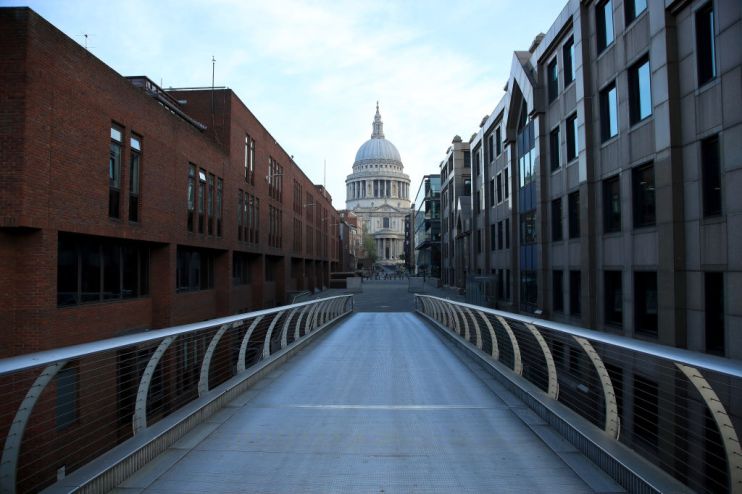Markets live: Aviation stocks drag on FTSE 100 but US stocks climb

The FTSE 100 fell today as the UK added Spain back onto its quarantine list, but US stocks rose as investors pegged their hopes on the likelihood of more stimulus.
The UK’s blue-chip index was down 0.2 per cent at 6,110 points in afternoon trading. The FTSE 250 was 0.6 per cent lower.
Read more: Dominic Raab defends decision to scrap Spain travel corridor
On Wall Street, the S&P 500 was up 0.5 per cent. The Dow Jones was 0.5 per cent higher and the Nasdaq was up 1.1 per cent.
In Europe, France’s CAC was 0.3 per cent lower and the continent-wide Stoxx 600 had also slipped 0.3 per cent. Germany’s Dax was up 0.2 per cent, however.
The mixed trading on the stock markets came as gold hit an all-time high.
Economic worries, the prospect of more stimulus and record low bond yields sent investors flocking towards the yellow metal. The dollar hit a two-year low.
FTSE 100 aviation and tourism shares hit
Investor nerves have been tested by new outbreaks of coronavirus. The UK this weekend said it would impose a quarantine on all travellers returning from Spain, which has seen a surge in cases.
The news caused traders to ditch aviation and tourism companies, which they fear could be hit by more quarantines.
British Airways owner IAG was the biggest faller on the FTSE 100, its shares tumbling eight per cent.
Shares in jet engine-maker Rolls Royce dropped four per cent. Intercontinental Hotels also fell four per cent.
Although it is now out of the FTSE 100, Easyjet plunged nine per cent. Tui, which also fell out of the index, dropped 12 per cent. Cruise line Carnival’s shares slumped eight per cent.
Read more: FTSE airline stocks slump over UK’s Spain travel quarantine
“Airlines desperately need a smooth summer as they bid to stabilise their balance sheet after months of losses,” said Joshua Mahony, senior market analyst at trading platform IG.
Yet he added: “This Spanish quarantine announcement is unlikely to be the last of its kind.” He said that “outbreaks throughout Europe [are] likely to provide a stop-start summer for airlines”.
Gold hits all-time high
Gold rose to a record high of as much as $1,944 per ounce as doubts set in about the global economic recovery and markets like the FTSE 100 fell.
It was trading two per cent higher this afternoon at $1,940 an ounce.
Fiona Cincotta, market analyst at City Index, said that “safe haven flows, a weaker US dollar, central bank stimulus and the prospect of additional US fiscal stimulus” were all helping gold.
The yellow metal is seen as a store of value in times of uncertainty. It is also viewed as a hedge against currency debasement and inflation as government’s try to stimulate their economies.
Fears over rising coronavirus cases in the US pushed the dollar to a two-year low. It fell 0.8 per cent on an index against other currencies to its lowest level since the summer of 2018.
The euro continued its stellar rise, however, and is currently trading at its highest level since the autumn of 2018. It was up one per cent this afternoon to $1.176.
US stocks climb despite China tensions
US stock markets chose to focus on the prospect of at least $1 trillion (£780bn) of stimulus being agreed by congress and the administration of President Donald Trump this week.
Republicans and Democrats are currently haggling between themselves and with each other over the deal.
The rise in stocks came despite US-China tensions continuing over the weekend, with the US lowering its flag over its consulate in Chengdu.
Beijing had forced Washington to close its outpost in retaliation for the closure of the Chinese consulate in Texas, Houston.
Meanwhile, Florida’s total number of reported coronavirus cases passed those of New York, a former flashpoint. China saw its highest number of domestic cases since mid-March.
Read more: German business morale picks up as recovery continues
Edward Moya, senior market analyst at currency firm Oanda, said: “US stocks are rebounding as investors shrug off virus worries and remain focused with the prospect of at least a $1 trillion fiscal stimulus deal this week.”
He also said there are “high hopes the US Federal Reserve will show they will provide longer-run accommodation”.